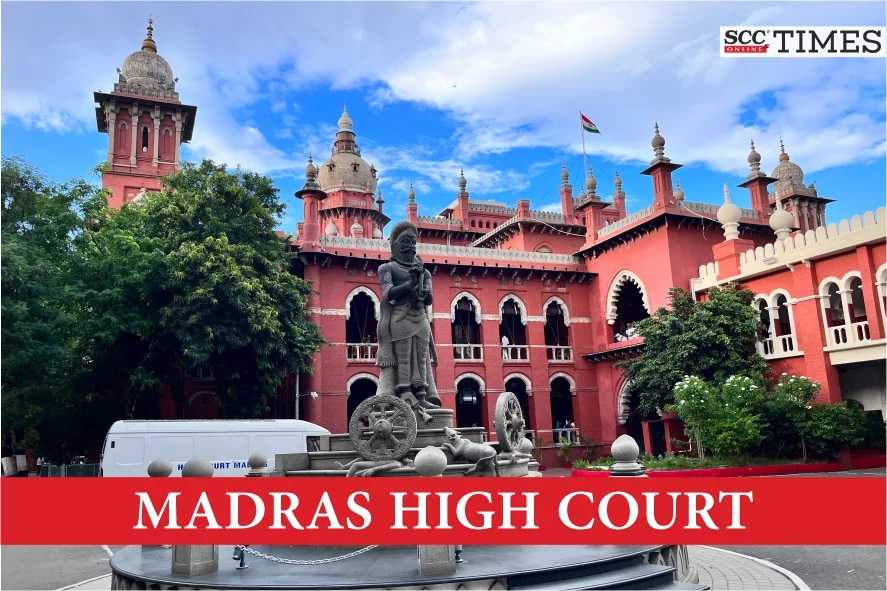Madras High Court: In a writ appeal filed by the State against the order directing the All India Private Schools Legal Protection Society (‘Society’) to implement the mandatory requirement of obtaining Transfer Certificate (‘TC’) by a student from the School where he studied, on getting admission to another School, and to allow the School Management to make entries in the Transfer Certificate including non-payment or delayed payment of School fees, the division bench of S.M. Subramaniam and C. Kumarappan, JJ. while setting aside the impugned order, gave the following directions:
- The State was directed to make all necessary amendments in consonance with the provisions of the Right of Children to Free and Compulsory Education Act, 2009, (‘RTE Act’) in Tamil Nadu Education Rules and Code of regulation for matriculation schools, within a period of three (3) months from the date of receipt of a copy of this order.
-
The State was directed to issue circular / instructions / orders to all the school administrations across the State of Tamil Nadu, not to insist upon to produce Transfer Certificate by the child at the time of Admission and prohibit the School Management from making unnecessary entries in the Transfer Certificate including non-payment or delayed payment of School fees. In the event of violation, actions will be initiated under Section 17 of the RTE Act and under the relevant laws applicable for the protection of children.
The State filed the present appeal on the ground that the findings of the Writ Court, in the impugned order, are running counter to the provisions of the RTE Act.
Issue: Is the mandatory rule to provide a TC for gaining admission in a new school goes against the vires of the Right to Education Act?
The Court noted that TC is issued to relieve a student from one school and allow him to get admission in another school. The schools insist on providing TC to give admission to students. It is difficult for any student to get an admission in the absence of a T.C
The Court remarked that the Courts have always given precedence to the welfare and the education of the child over any other considerations. When the object of a legislation itself is Right to free and compulsory education for children, all other arguments take a backseat.
The Court said that the hub of the wheel is the children’s right to education around which all other considerations flow. This Court can never allow a child to be stigmatised on the ground of non-payment of fees. The transfer certificate is a tool to ensure that a student is studying in one particular school at one time and that through the issuance of TC, the child gets relieved from one school and can gain admission into another school. Hence, a TC is not a tool for the schools to collect arrear fees from the parents or to weigh the financial capacity of the parents. TC is a personal document issued in the name of the child. Schools cannot put their own problems on the child by making unnecessary entries on the TC.
The Court said that the explicit mention of non-payment of fees on the TC will lead to socio-economic stigmatisation of the child. This strikes at the core of the RTE Act. It is the duty of the school to understand the emotional challenges faced by the child during such times and instead of burdening them, it is a time to lend their care and assistance to the child. It is a traumatic experience for the child when it receives a TC with stigmatising remarks on non-payment or delayed payment of fees. Such an action by the school authorities attracts Section 17 of the RTE Act.
The Court recommended that requisite amendments be made to the Tamil Nadu Education Rules and the Code of Regulations for Matriculation Schools in Tamil Nadu to amend the provision obligating the need for TC at the time of admission into schools. Further, the Court directed that any clause in the Rules or the Code framed by the State to that extent which is repugnant to the provisions of the RTE Act, which is an Act of Parliament, to be treated as null and void.
The Court noted that Section 5 of the RTE Act which clearly implies that TC is not a mandatory document, prevails over the Tamil Nadu Educational Rules and the Code of regulation for Matriculation schools in Tamil Nadu.
After taking note of Sections 5 and 15 of the RTE Act, the Court noted that proviso to Section 5 (2) stipulates that delay in producing TC shall not be a ground for delaying or denying admission in schools. Thus, it said that the significance attached to a TC has been watered down through this provision. Hence the production of TC is not mandatory per se. It is an accessory rather than a necessity.
The matter will next be listed on 25-10-2024 for compliance.
Advocates who appeared in this case :
For Appellants: Special Government Pleader (Education) U.M. Ravi Chandran
For Respondent: Senior Counsel G. Sankaran







